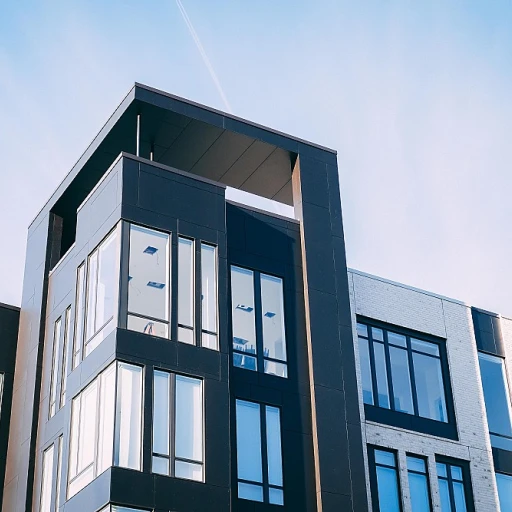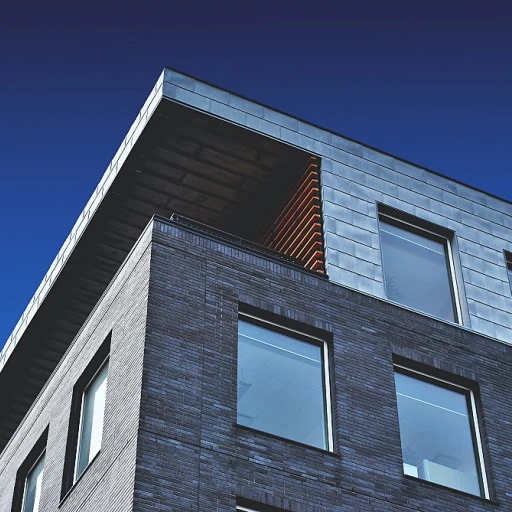
Overview of santa barbara county real estate taxes
The basics of santa barbara county real estate taxes
Real estate taxes are a necessary part of owning property, and in Santa Barbara County, California, they can be a bit overwhelming if you're not adequately informed. To get a grip on this, you must understand how these taxes work.
Tax calculations and rates
In Santa Barbara County, property taxes are calculated based on the assessed value of your property. The base tax rate is set at 1% of the assessed value, which is a figure typically close to the market value at the time the property was acquired. Additional local taxes and special assessments may apply, pushing the average effective tax rate to around 0.72% of the property's market value, according to data from SmartAsset.
Components of property tax bills
Your property tax bill is more than just a simple percentage of your property's value. It includes multiple components such as the base rate, voter-approved debt rates, and special service assessments. You’ll need to understand each of these to get the complete picture.
For example, bonds approved by voters for schools or infrastructure projects can add to your bill. This results in fluctuating amounts from year to year. The Santa Barbara County Treasurer-Tax Collector’s office provides detailed breakdowns and you can even view your bill online.
Important exemptions and claims
Property owners in Santa Barbara County can potentially lessen their tax burden through various exemptions. Common ones include the Homeowners’ Exemption and the Veterans’ Exemption. For business property, there are other specific exemptions like the Business Property Statement BOE.
Claiming an exemption can be a game-changer. To qualify, you'll need to submit the appropriate form to the Santa Barbara County Assessor’s office. They can guide you through the process if you need help.
Paying your taxes
Making timely tax payments is crucial to avoid penalties and interest. The Santa Barbara County Treasurer-Tax Collector's office offers various payment methods: you can mail a check, pay online, or even set up a payment plan if necessary. Just ensure payments are posted by the due date.
Property reassessment and transfer rules
When you buy a new home or transfer ownership, your property's assessed value gets reassessed. This can affect your tax rate. Proposition 13 limits the annual increase to a maximum of 2%, but any major changes in ownership or improvements to the property can lead to a reassessment.
Common issues and controversies
A common issue many property owners face is incorrect assessments. If you think your property's assessed value is too high, you can appeal. According to the California State Board of Equalization (BOE), these disputes are relatively common but resolve through a systematic appeal process.
If you are ever in doubt or need specific legal advice on these matters, consider consulting with a real estate attorney near me with free consultation.
Property tax rates in santa barbara county
Property tax rates in barbara county
The property tax rates in Santa Barbara County can be quite an eye-opener. This county, like others in California, calculates property taxes based on a specific rate, often referred to as the ad valorem rate, meaning it's based on the assessed value of the property. According to California Tax Foundation, the base rate is generally 1% of the assessed value. Additional rates can be added depending on local voter-approved measures, making the average property tax rate around 1.1% to 1.2% of the property's assessed value.
Why do rates vary?
Factors such as location and specific features of the property can affect taxes. For example, properties in school districts that have passed bond measures for improvements will see higher rates. An assessment in 2023 found that the approved bond measures added an additional 0.3% to the property tax rate in some parts of Santa Barbara County.
Examples to consider
Let's consider a practical example to break this down. Suppose you own a home in Santa Barbara County assessed at $500,000. At the base rate of 1%, your property tax would amount to $5,000 annually. Add an average of 0.2% for other local voter-approved measures, that brings your total to $5,600 per year. Remember to check with the Santa Barbara County Treasurer-Tax Collector for the latest updates on specific rates and measures.
Expert insights
According to Eva Tucker from Ownwell Inc., "Understanding local measures and their impact on property tax rates is crucial for property owners. Being proactive about knowing your rates can help in financial planning and foreseeing potential hikes in tax bills." Eva suggests using tools provided by the California Board of Equalization (BOE) for more precise calculations and understanding of how state measures play into your property tax rate.
Trends
In recent years, there have been trends in California counties, including Santa Barbara, where residents are voting for more educational and infrastructural improvements, impacting property tax rates. Experts predict that as the population grows and demands for better public amenities rise, these additional voter-approved taxes are likely to increase.
For more details on the matter, you might find it useful to check out our comprehensive legal masterclass on navigating property law challenges in the exclusive estate market.
Understanding your property tax bill
Breaking down the components of your property tax bill
When you first lay eyes on your property tax bill, it can feel a bit overwhelming. However, breaking it down piece by piece helps in understanding how much you owe and why. Here’s a handy guide to some of the main components you’ll find on your Santa Barbara County property tax bill.
Assessed value
The assessed value is essentially what the county believes your property is worth for tax purposes. It’s based on the purchase price of your property, adjusted annually for inflation (not exceeding 2% per Proposition 13 in California).
Property tax rate
In Santa Barbara County, the property tax rate is typically around 1% of the assessed value of the property. This base rate can be higher if there are additional assessments for local bonds or special assessments that pertain to specific services or improvements in your area.
General levy
The general levy is the fixed percentage (usually 1%) of the assessed value, which funds general services like schools, roads, and public safety. According to the Santa Barbara County Tax Collector, this money is crucial for maintaining quality public services (Santa Barbara County Treasurer-Tax Collector).
Special assessments
Special assessments cover additional funding requirements for specific projects or services that benefit your locality. For example, you might see charges for storm drain maintenance, local school bonds, or parks and recreation improvements on your bill. You can find a detailed explanation of these assessments on the county’s tax collector website.
Mello-roos
Sometime you'll notice a Mello-Roos line item on your tax bill. This refers to special taxes levied to fund public projects and services, particularly in newly developed areas. It's named after the California legislators who enacted the Mello-Roos Community Facilities Act of 1982.
Homeowner exemptions
Specific exemptions, such as the homeowner’s exemption, may reduce the taxable value of your property. This exemption generally provides a $7,000 reduction in your assessed value, leading to a slight decrease in your tax bill. You can claim this via the BOE form for property statement.
Penalties and fees
If you miss the deadline for your property tax payment, penalties and fees start accruing. These can add up swiftly, so it’s always best to pay your bill promptly. The Santa Barbara County Tax Collector's Office has more information on due dates and penalties.
Exemptions and claims in santa barbara county
Exemptions for veterans and other qualified groups
Certain groups, such as veterans, disabled individuals, and nonprofit organizations, have access to exemptions that can reduce their property tax burden in Santa Barbara County. The Veterans’ Exemption allows veterans to receive a small reduction on their properties used as primary residences. According to Boe form REV-2021, this exemption often provides relief for veterans who meet specific criteria.
Lessors' exemption claim for leased property
Owners who lease their property to public and charter schools might be eligible to file a lessors' exemption claim. This can be particularly beneficial as it offers a tax break, lightening the load for those who play a role in the educational sector. Lessors can use BOE form 268-A to apply for this exemption.
Claim reassessment exclusion for seniors and disabled
In cases where seniors or disabled persons need to transfer their base year value to another home, the reassessment exclusion claim is a boon. This allows them to transfer their property’s value to a new residence without tax increases. For specifics on eligibility and claim requirements, BOE form 60-A can be downloaded.
Business property statement boe
This yearly requirement affects businesses operating in Santa Barbara County. Each business must file an accurate Business Property Statement (BPS) to report items like machinery, furniture, and equipment. Non-compliance can lead to penalties, highlighting the need for timely and precise reporting. For assistance, the Business Property Statement BOE form 571-L can be invaluable.
Base year replacement and exemption change eligibility
When a property owner replaces a structure destroyed in a disaster, they may be eligible to maintain their base year value. This ensures the tax assessment remains consistent with the original structure’s value. Conditions, eligibility, and required forms, like BOE Misc-118, can be found on the county's tax collector’s website. Additionally, changes in exemption eligibility, such as exemption for low-income households, require careful review and timely submission of necessary forms.
Veterans organization exemption
Specific to Santa Barbara County, the Veterans Organization Exemption permits veteran groups to claim reduced property taxes for properties used exclusively for veterans' activities. Verified organizations can refer to the California Revenue and Taxation Code for detailed criteria.
Understanding the claim process
Claiming these exemptions isn't necessarily straightforward. Owners must ensure all forms are filled out correctly and submitted by the specified deadlines. Failing to meet these requirements could result in dismissal of the claim. The California Board of Equalization has streamlined instructions and FAQ sections to aid property owners. Verifying the form details news is critical to avoiding common pitfalls in the application process.Whether you’re a veteran, senior, homeowner, or business operator, understanding and leveraging these exemptions, properly completing BOE forms, and adhering to guidelines can significantly lighten your property tax burden in Santa Barbara County.
How to make property tax payments
Understanding the payment process
When it comes to making property tax payments in Santa Barbara County, the process can seem a bit overwhelming at first. However, with a clear step-by-step approach, it becomes manageable.
Payment deadlines
Property taxes in Santa Barbara County are typically due in two installments. The first installment is due on November 1, and is considered overdue if not paid by December 10. The second installment is due on February 1 of the following year, and becomes overdue if not paid by April 10. These dates are crucial if you want to avoid penalties and interest.
Methods of payment
There are several ways to pay your property taxes:
- Online: You can pay online through the Santa Barbara County Tax Collector's website using a credit card, debit card, or e-check.
- By Mail: Send a check or money order along with your payment stub to the address indicated on your tax bill.
- In Person: Payments can be made at the Tax Collector's office during regular business hours.
- Over the Phone: Call the Tax Collector's office if you prefer to pay by phone using a credit or debit card.
Important details to keep in mind
When making a payment, it’s essential to include your parcel number, which you can find on your tax bill. Failing to do so can result in your payment being misapplied, leading to potential penalties.
Penalties for late payments
If you miss the payment deadlines, expect a 10% penalty on any unpaid amount for each installment. Additionally, if there are still unpaid amounts after June 30, a $53 late fee will be added to each delinquent installment, a significant amount that can add up quickly.
For those who consistently have trouble meeting deadlines, setting up a reminder system on your phone or email can be helpful. It's also worth noting that some taxpayers prefer to pay their entire property tax bill upfront to avoid the stress of remembering two separate deadlines.
Understanding the tax collector's role
The Treasurer-Tax Collector is responsible for mailing out property tax bills and collecting the payments. They also handle delinquent taxes and can initiate the property tax default process if taxes remain unpaid for multiple years.
In cases of hardship, such as financial difficulties, it’s possible to contact the Tax Collector’s office to discuss possible payment plans or extensions. Communication is key here to avoid unnecessary penalties and stress.
The role of the treasurer-tax collector
Behind the scenes at santa barbara county's tax collector office
Most people don't think much about who collects their taxes, but behind every payment, there's a dedicated team working at the santa barbara county Treasurer-Tax Collector's Office. These folks are more than just number crunchers; they play a crucial role in keeping the county's services running smoothly.
What the treasurer-tax collector actually does
The Treasurer-Tax Collector's Office isn't just responsible for sending out your property tax bill and collecting payments. They handle the entire financial fabric of the county, ensuring funds are allocated correctly and investments are managed wisely. A big part of their job involves maintaining the public trust by following strict regulations and transparency protocols.
According to their official website, the office also manages county investments, debt issuance, and banking services. Think of it like your household budget but on a much larger scale.
Breaking down the property tax collection process
Ever wondered how your property taxes are actually collected? The process starts with the Assessor's Office, which determines the value of your property. This information is then sent to the Treasurer-Tax Collector's Office, which calculates your tax based on these assessments and the current tax rate.
Tax statements are mailed out annually, usually in October, and payments are due in two installments: the first by December 10 and the second by April 10. Missing these deadlines results in penalties and interest, so it's crucial to stay on top of those dates.
Digital innovations in tax collection
Gone are the days when you had to mail a check or pay in person. The Treasurer-Tax Collector's Office has embraced technology to make your life easier. Nowadays, you can pay your property taxes online through their secure portal, review past payments, and even download important forms like the BOE claim reassessment exclusion or change ownership statement.
In fact, a 2019 report revealed that an increasing number of taxpayers prefer digital payments, with Santa Barbara County seeing a 15% rise in online transactions year over year. This shift not only simplifies the process for taxpayers but also helps the county save on administrative costs.
The human touch
Despite technological advancements, the Treasurer-Tax Collector's Office still values human interaction. Their customer service team is well-trained to assist with questions ranging from understanding your bill to explaining how exemptions work. Whether you're a first-time homeowner or a seasoned property investor, they're there to help make sense of it all.
For more detailed guidance, don't hesitate to visit their official page or give them a call. They offer consultations and can walk you through specific forms like the BOE rev change ownership, boe exemption claim, or production report BOE.
Community involvement and outreach
The office doesn't just sit behind desks all day. They're actively involved in community outreach, educating residents about financial literacy and property tax responsibilities. They hold events and workshops throughout the year to demystify the often complicated world of property taxes.
In particular, they focus on informing seniors and veterans about special exemptions like the veterans organization exemption and the lessors exemption claim. These programs can significantly reduce the tax burden for those who qualify, making it essential for eligible residents to understand their options.
Property reassessment and change of ownership
Property reassessment and change of ownership
When you buy or sell real estate in Santa Barbara County, property reassessment is a critical factor to consider. Reassessments often lead to new evaluations of the property's market value, which can significantly affect your property tax bill.
In California, properties are reassessed to their current market value when ownership changes. This is in line with Proposition 13, which allows annual increases in assessed value to be capped at 2% unless there's a change of ownership or new construction. This means that even if property values skyrocket, tax increases remain limited unless you buy or sell property.
One notable exception is the parent-child exclusion under Proposition 58. This exclusion allows transfers of primary residences between parents and children without triggering a reassessment. According to the Board of Equalization (BOE), certain conditions need to be met, and a BOE-58-G form must be filed.
Claiming reassessment exclusion can result in significant tax savings. Santa Barbara County officials reported that reassessment requests increased by 15% following the amendment of Proposition 19, which broadened the scope of property tax transfers and reassessments. However, navigating this process can be complex; thus, it's recommended to consult with professionals familiar with BOE regulations and property tax laws in California.
Additionally, the concept of base year value transfer is crucial (BOE-60-AH). Homeowners over the age of 55, severely disabled, or victims of a natural disaster can transfer their property's taxable value to a replacement property within the same county or in participating counties. This transfer can help maintain lower property taxes even after moving to a new home.
Navigating change of ownership and reassessment exclusions can be tricky. Ensure you understand the legal complexities of Santa Barbara County real estate taxes and seek professional guidance when needed.
Common issues and controversies
Understanding disputes with your property tax bill
One of the common gripes among Santa Barbara County property owners is the dispute over property tax bills. Within the county, discrepancies can arise due to various reasons, including clerical errors, unexpected changes in the assessed value, or misunderstandings about exemptions and claims.
Clerical errors and miscalculations
Sometimes, simple human errors lead to inflated tax bills. For instance, a typo or wrong data entry on the property assessment could result in an incorrect bill. According to a study by a property appraisal firm, around 10% of property tax bills contain clerical errors.
Unexpected changes in assessed value
Unexpected increases in the assessed value of properties can also be contentious. Property owners are often left puzzled and unhappy when they receive a revised, higher tax bill. According to the California State Board of Equalization (BOE), assessed values are updated annually and can significantly affect property taxes.
Exemptions and claims confusion
Misunderstandings about exemptions and claims often lead to disputes. For example, a homeowner may believe they qualify for a 'Homeowners' Exemption,' but if the proper BOE form isn't filed correctly, they might not receive it. In Santa Barbara County, the Assessor's Office FAQ notes that errors in filing the Exemption Claim BOE form can result in improper taxation.
Property reassessment controversies
Property reassessments are another common source of contention. If a property changes ownership or undergoes significant improvement, it is reassessed, and this can result in a higher tax rate. Some property owners feel this process lacks transparency or fairness. To combat this, the Santa Barbara County Assessor offers a 'Claim Reassessment Exclusion' if certain criteria are met, such as an interfamily transfer that might qualify for a base year replacement or other special assessments.
Filing an appeal
Disputes related to property taxes can be formally appealed. Data from the BOE's Annual Report shows that in 2021, approximately 9,000 property tax appeals were filed in California, with a notable percentage coming from Santa Barbara County. Property owners may contact the county's Assessment Appeals Board to start the process, ensuring they bring all necessary documentation and evidence to support their claims.
-large-full.webp)




-large-teaser.webp)


-large-teaser.webp)



